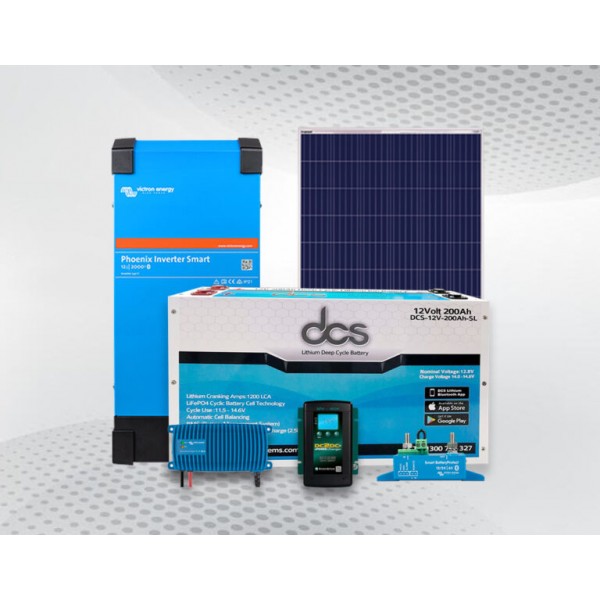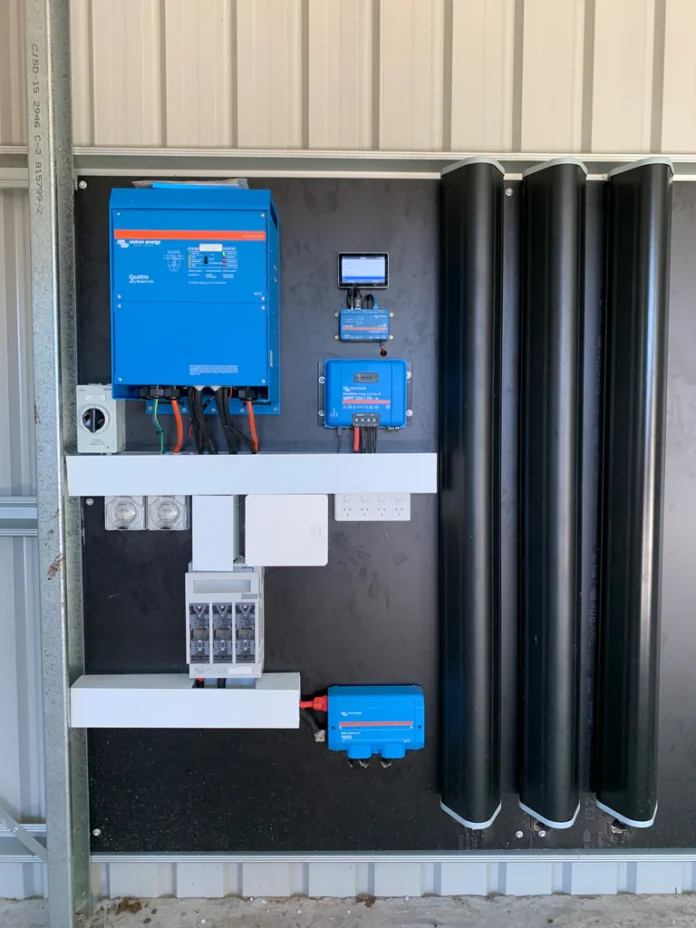If you are looking for an off-grid Best Solar Inverter, there is no better place to start than with our list of the best off grid solar inverters for home use. With such a wide variety of manufacturers and models available on the market today, it can be difficult to choose one that fits your needs as well as your budget. We have narrowed down our options based on customer reviews and ratings as well as price per watt ratio (a measure of efficiency) in order to help you make an informed decision about which solar inverter is right for you!
When you begin the search for a Best Solar Inverter for your home, one of the first things to decide will be whether to have an on grid or off grid inverter.
When you begin the search for a Best Solar Inverter for your home, one of the first things to decide will be whether to have an on grid or off grid inverter.
Off-grid solar inverters are more expensive and complex than their on-grid counterparts because they need to be able to convert DC power into AC power efficiently and send it back out into the grid when needed. This is important because any excess power that is produced must be sent back into the grid so that it can be used by other users and prevent energy waste.
An alternative method of powering an entire home with Best Solar Inverter is through an off-grid system that uses batteries instead of being linked up with a power company’s lines and distribution network. This type of setup would not only eliminate your dependency on natural gas or coal burning plants but also provide much better security from those types of disasters too!
Off-Grid Solar Inverter is more complex and expensive than Grid Tied Inverters, but they can be more cost effective in certain situations.
Off-Grid Inverters are more complex and expensive than Grid Tied Inverters, but they can be more cost effective in certain situations.
Off Grid Inverter has more features than Grid Tied Inverters.

Generally speaking high efficiency is very important so that the inverter doesn’t waste too much power while converting it.
Generally speaking high efficiency is very important so that the inverter doesn’t waste too much power while converting it.
- High efficiency means less power loss, which means more power can be used in the house. This will reduce your electricity bills and make it easier to sell excess solar power back to the grid.
An off-grid Solar Inverter will allow you to power your home and appliances without being connected to the grid. A grid-tied inverter can only be used when your solar system is connected to mains power. The inverter is one of the most important parts of a solar system. It’s what takes power from your panels, converts it into AC electricity and sends it to your home. The quality of this component will have a huge impact on how well your system works, so it’s important to choose wisely.
A common question regarding inverters is how many watts needed?
When you are looking to buy an off-grid Solar Power Inverter, one of the common questions that people ask is how many watts do I need?
The answer is: It depends on the specific case.
If you have a small system, say around 300W and less than 1000W total, then we recommend getting at least 1000W inverter because it will be able to charge all your batteries in one go and you won’t have to worry about anything else.
In case of a large system (3000W), then 1500W inverters are perfect for charging batteries quickly and efficiently. This way you can save money by not having extra panels lying around which are not being utilized in any way.
The answer is that it depends on the specific case. We recommend 1000W minimum, if you have less than 1000W you should consider adding some more Off Grid Solar Inverter panels.
But the answer to this question is not as straightforward. To understand why, we have to look at a few things:
- What size solar panel(s) are you using? How many volts are they producing? Most panels will produce around 18V if they’re connected in series, which means that each panel has a voltage of about 9V. So if you have 3 panels (3 x 9V = 27V), that’s already more than enough to power your inverter. If it’s less than that, then adding more solar panels would be an easy solution.
- What size Solar Power Inverter do you want? Usually, larger inverters can handle more wattage – so if the total wattage required by your household appliances is higher than 3500W and you want an inverter with high efficiency ratings (see below), then having multiple smaller inverters might be better for efficiency reasons alone.
It’s also essential choosing a model with wide input range in order to get the best result from your Off Grid Solar Inverter system.
Choosing an inverter with a wide input range will ensure that your system can take advantage of all the power generated by your Solar Power Inverter panels. This is especially important because input power requirements vary based on factors such as where you live and how much sunlight you get at different times of year. If you install a system with too little capacity, your panels may not produce enough electricity to meet the demand during peak production periods.
- Off Grid Solar Inverter is a simple calculation:
Multiply the number of watts per panel by the number of panels (Watts x Panels = Total Watts). Then, divide by 600V (the nominal voltage of most residential systems), and take away 10% for losses from inverter heat dissipation and transformer efficiency losses. For example:
Total System Capacity = 1 kWp x 6 panels = 6 kWhp
(6 kWhp) / 600V – (0.10*6kWhp) = 3 kW
Therefore, in this case we would want an Inverter For Home rated between 4-5 kW or greater depending on how much we are willing to spend on our electrical bill each month!
Another feature to look for is maximum surge power – Off Grid Inverter will enable to start big loads easily – like compressors or a pool pump
Surge power is the maximum amount of power that can be supplied to a load for short periods of time. This Off Grid Inverter can be very useful for starting up big loads, like compressors or pool pumps.
It’s important to note that surge protection is different than just using an inverter with higher wattage capacity. Inverters with high surge power ratings are specifically designed to handle larger currents without overheating; they are also more expensive than those without this feature.
And of course pay attention to a good product warranty – Inverter For Home will save money on repairs in case any problem arise.
Be sure to pay attention to a good product warranty – this will save money on repairs in case any problem arise. For example, the Sunny Boy SB3000TL-20-O1 has a 10 year warranty and covers all parts, which is an industry best warranty.
If you’re looking for an Inverter For Home with a longer or better warranty, consider these other great options:
Conclusion
We hope that this article helped you to understand the basics of Solar Power Inverter and how they work. If you’re still looking for more information about choosing a good model for your home, we recommend that you take a look at our selection of the best off-grid inverters on the market today!

